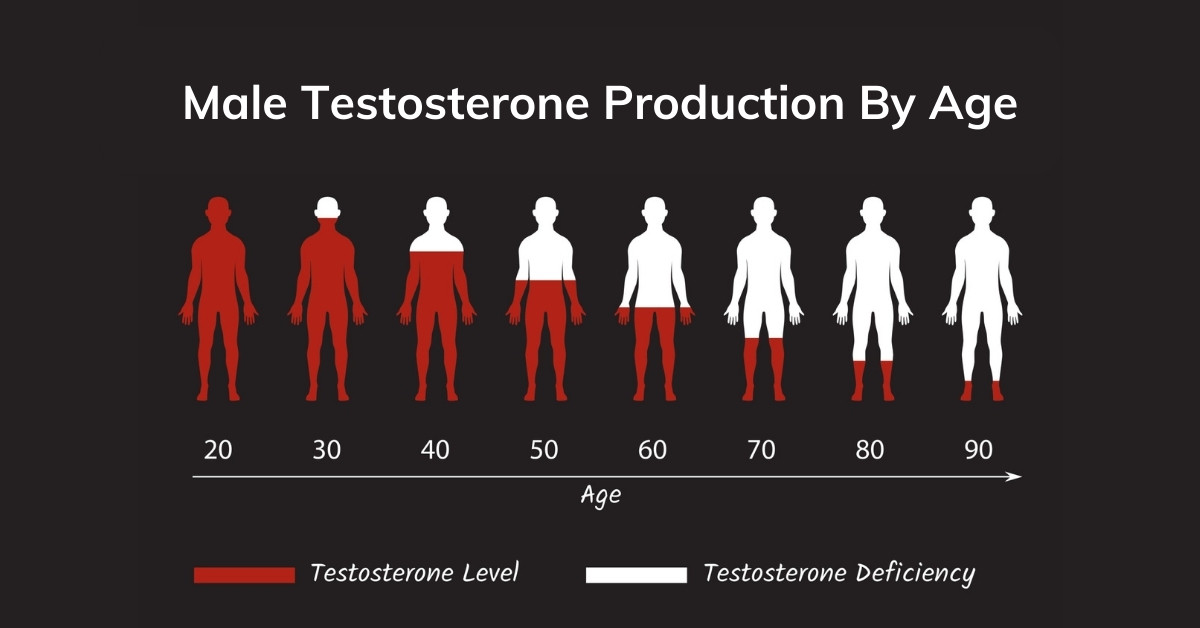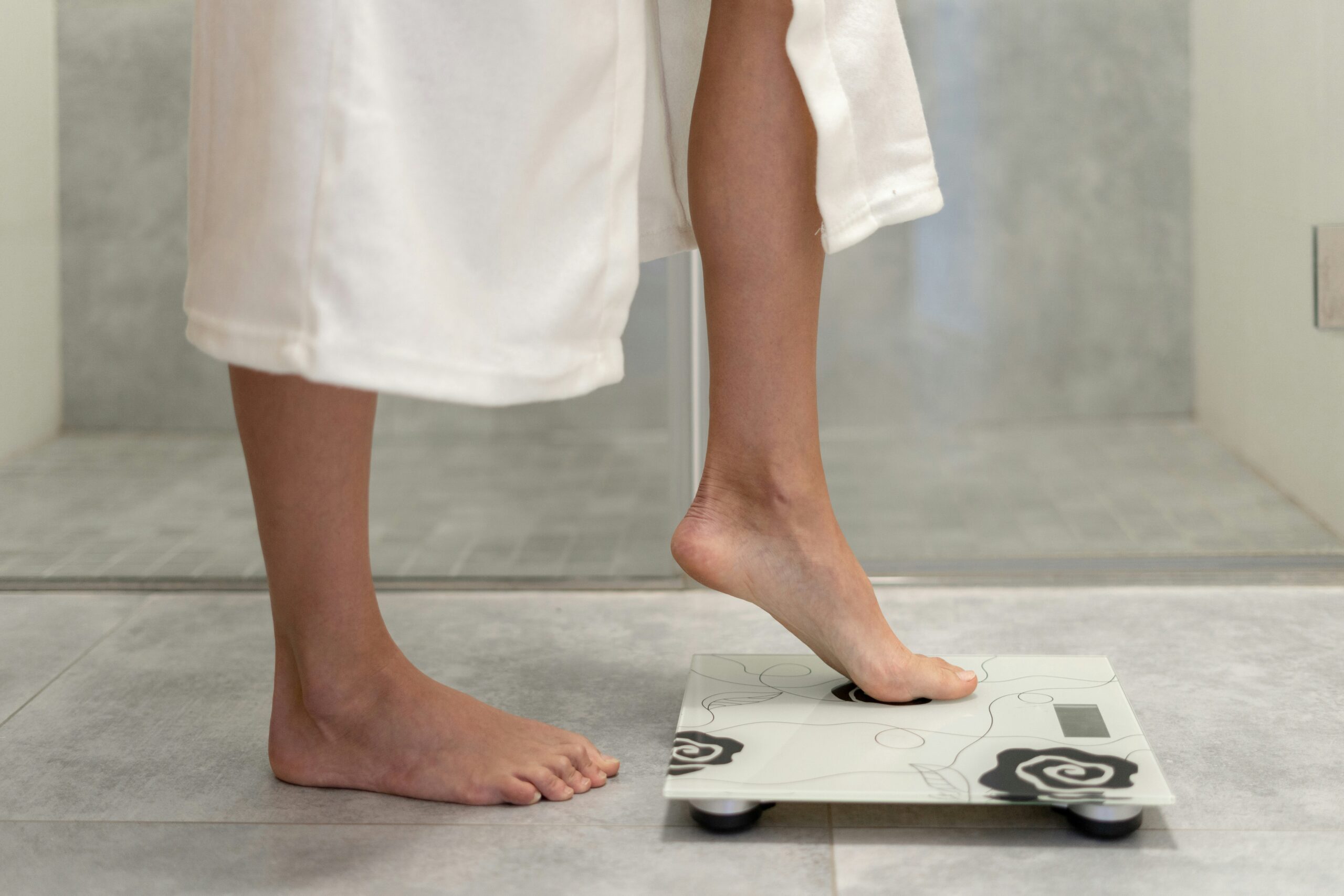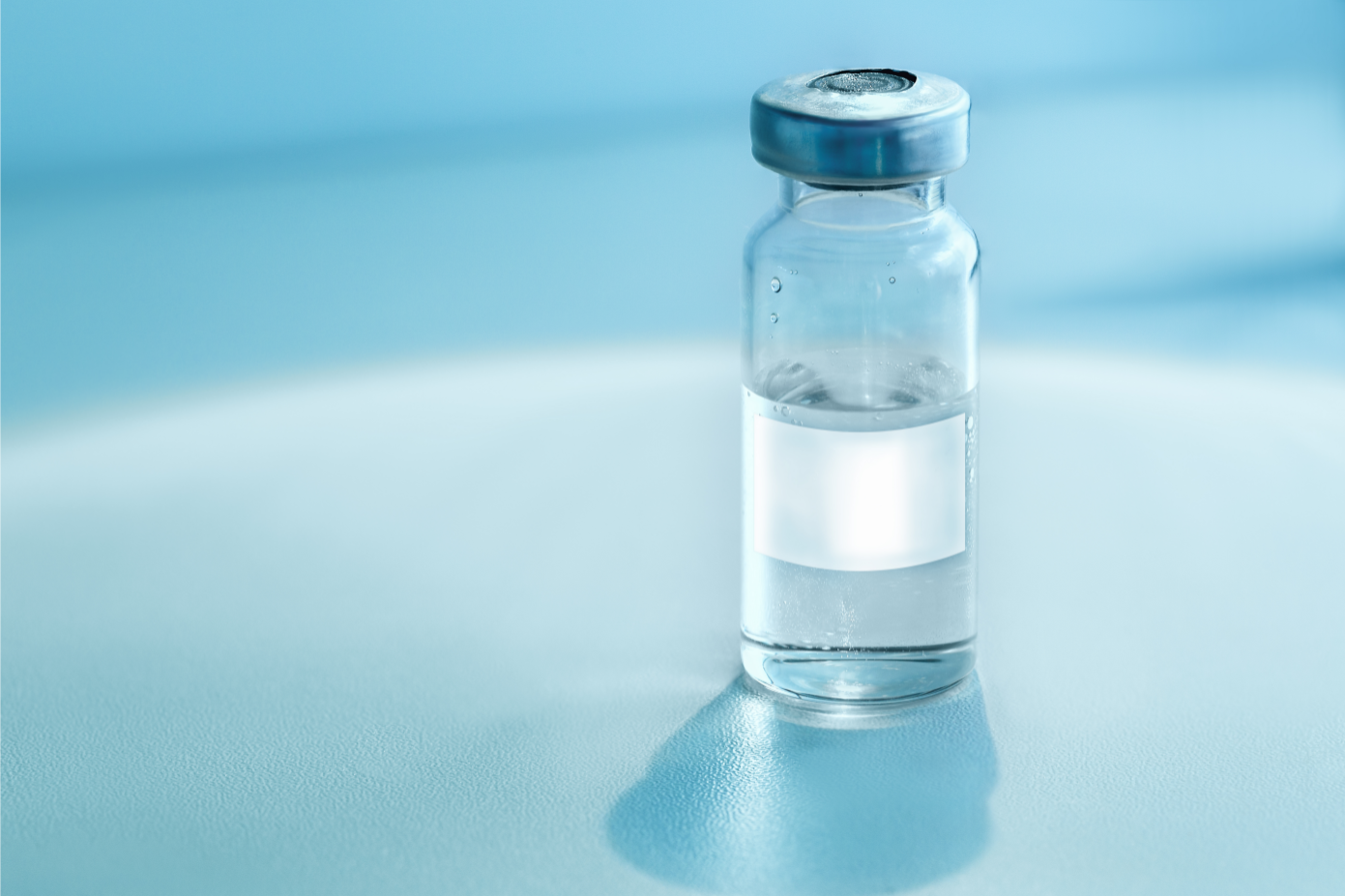Testosterone is an important hormone in men and women, essential for various functions to occur properly. The thing is that, like with other hormones, the levels change as you age. To make sure that your body is functioning at optimal efficiency, it’s essential to make sure that your testosterone levels are where they need to be for your age. This article will look closely at how important this is for your body and what normal testosterone levels are by age.
Understanding Normal Testosterone Levels
The testosterone in your body is measured by ng/dL (nanograms per deciliter). This number usually hits its peak around your teenage years and then starts to decline. As you hit your 30s, this number typically starts declining by 1% every year. However, people of all ages are at risk for issues like low testosterone. Why is this happening? Several factors can contribute to this problem, most of which are environmental factors. This includes stress and chemicals like PCBs (polychlorinated biphenyls).
To be declared low testosterone, you will have to be tested by a medical professional.
Normal Testosterone Levels by Age
During your teen years, you hit your peak testosterone between 300 ng/dL and 1,200 ng/dL. This is a number that does slowly decline as you get older. Here are the normal testosterone levels by age to look at:
- Children: 7-130 ng/dL
- Early teens: 7-1,200 ng/dL
- Late teens: 300-1,200 ng/dL
- Adulthood: 240-950 ng/dL
- 40s: 252-916 ng/dL
- 50s: 215-878 ng/dL
- 60s: 196-859 ng/dL
- 70s: 156-819 ng/dL
There are estimates of what’s the average testosterone levels for these ages because there are various criteria that need to be considered. The numbers may be off if factors like lifestyle and pre-existing conditions are not factors. If you have lower numbers but aren’t experiencing symptoms of low testosterone, then you should not worry too much about this issue. If you are experiencing symptoms, a medical professional can test you and determine the best course of action.
If testosterone levels are not within the normal ranges, this could be caused by aging in addition to conditions and issues such as:
- Alcoholism/excessive drinking
- Depression
- Medications
- Thyroid gland disorders
- Testicular cancer
- Severe obesity
- Use of opioids
- Genetic conditions
Why It’s Important to Maintain Proper Testosterone Levels
Men require the right amount of testosterone in their bodies because this helps the body better regulate glucose, cholesterol, and lipids. Testosterone can also be beneficial in protecting your bones from conditions like osteoporosis. Testosterone is also able to protect your brain from memory loss and dementia.
As you age, there is natural hormone loss that you will end up with. However, if the hormones are reducing to such a point that isn’t the result of normal aging, you can end up with various issues. This means that you can end up with problems like higher cholesterol and could be prediabetic.
These are all reasons why you should maintain proper testosterone levels.
If you suffer from low testosterone, the good news is that you can utilize both medical treatments and natural ways to increase your testosterone. You can do these things in addition to hormone treatments to improve your testosterone levels.
Regularly Exercise
Those people who exercise regularly tend to have higher testosterone levels than those who don’t. For one thing, this can reduce your risk of issues like obesity, which can contribute to low testosterone levels. Exercises like weight lifting can be beneficial in boosting your levels of testosterone.
Changes to Diet
There are a few reasons why diet changes can help. First, it also helps prevent you from gaining weight so you won’t become obese. It can also help you lose weight, improving your testosterone levels. Eating protein and carbs can also be significant, especially if you exercise regularly.
Reduce Stress
Stress can wreak havoc on your body. One way it can do this is by increasing the cortisol in your body, which can reduce your testosterone levels if it maintains the high cortisol levels. You can improve your testosterone levels by sleeping more and finding ways to manage your stress.
Symptoms of Low Testosterone
How do you know if you have low testosterone? You will likely be experiencing side effects that you will notice. Some people may have been born with conditions that cause them to have lower testosterone levels. There are many different symptoms of low testosterone that you may experience.
One thing that low testosterone levels can do is cause changes to your sexual function. These changes can include:
- Infertility
- Impotence
- Erectile dysfunction
- Reduction in libido (sexual desire)
- Reduction in spontaneous erections
Some other symptoms of low testosterone include:
- Fatigue
- Depression
- Decreased bone density
- Men may notice larger breasts
- Inability to concentrate
- Sleep pattern changes
- Reduction in strength and muscle bulk
- Noticeably reduced motivation
You don’t need to suffer in silence if you are concerned about your testosterone levels. As embarrassing as many men find this issue, it can be treated in most situations. To be diagnosed with low testosterone, you must go to a medical professional. They will conduct a physical exam and perform some blood tests on you.
The doctor will closely examine your sexual development and physical appearance for the physical exam. Testosterone levels are typically much higher in the morning, so younger men need to be tested before 10:00 a.m. for the most accurate results. Men over 45 can be tested up until 2:00 p.m. for accurate results.

Male Hormone Testing & Testosterone Replacement Therapy (TRT)
If you suspect that you have low testosterone levels, your doctor will perform various tests to check your hormone levels to see if this is an issue that you should be concerned with. If the doctor does determine that you have a hormonal imbalance, the doctor will then work with you to create a plan that can help you get your hormones in balance. The balance of hormones is essential to ensure that your body is functioning as it should, so don’t hesitate to get tested if you have reasons for concern.
At EVOLVE, we specialize in hormone optimization and making sure that imbalances are properly treated. Because every person is different, it’s important to carefully review your test results to create the most effective treatment plan. This treatment plan is prescribed by a licensed physician who specializes in treating hormone-related symptoms. You will receive ongoing support from the EVOLVE patient care team every step of the way, from scheduling a blood panel test to monthly treatment and follow-ups.
Conclusion
As you can see, testosterone is a crucial hormone to the function of your body. If you are concerned about your testosterone levels, you should contact your doctor or hormone specialist as soon as possible. They can help you with a treatment plan which will boost your testosterone levels to where they should be. Are you ready to check your testosterone levels and find a treatment custom-made for you? Contact EVOLVE patient care today!
Massachusetts Male Aging Study: https://academic.oup.com/jcem/article/87/2/589/2846777






